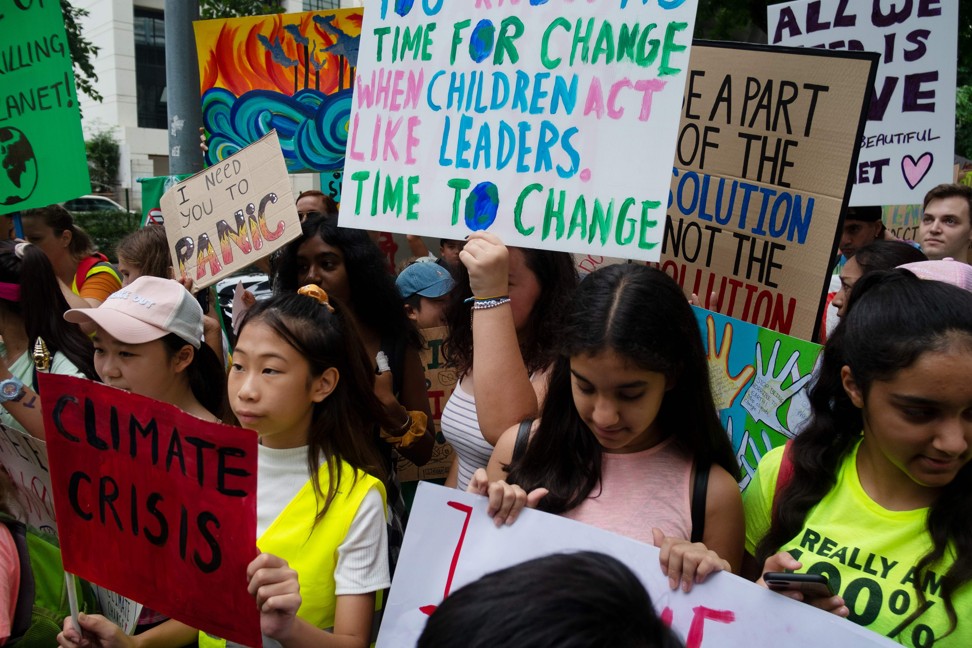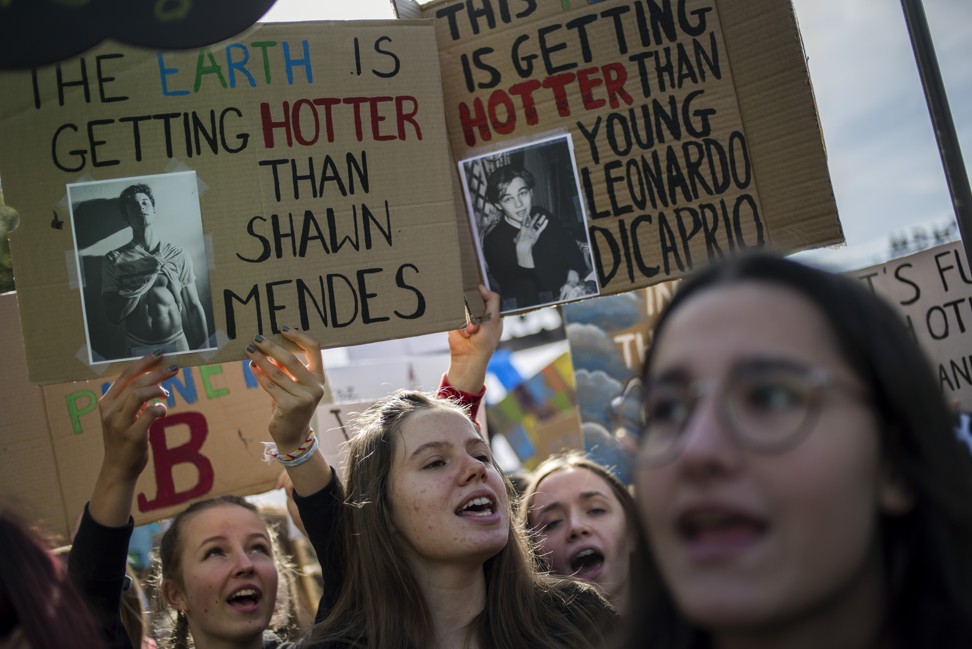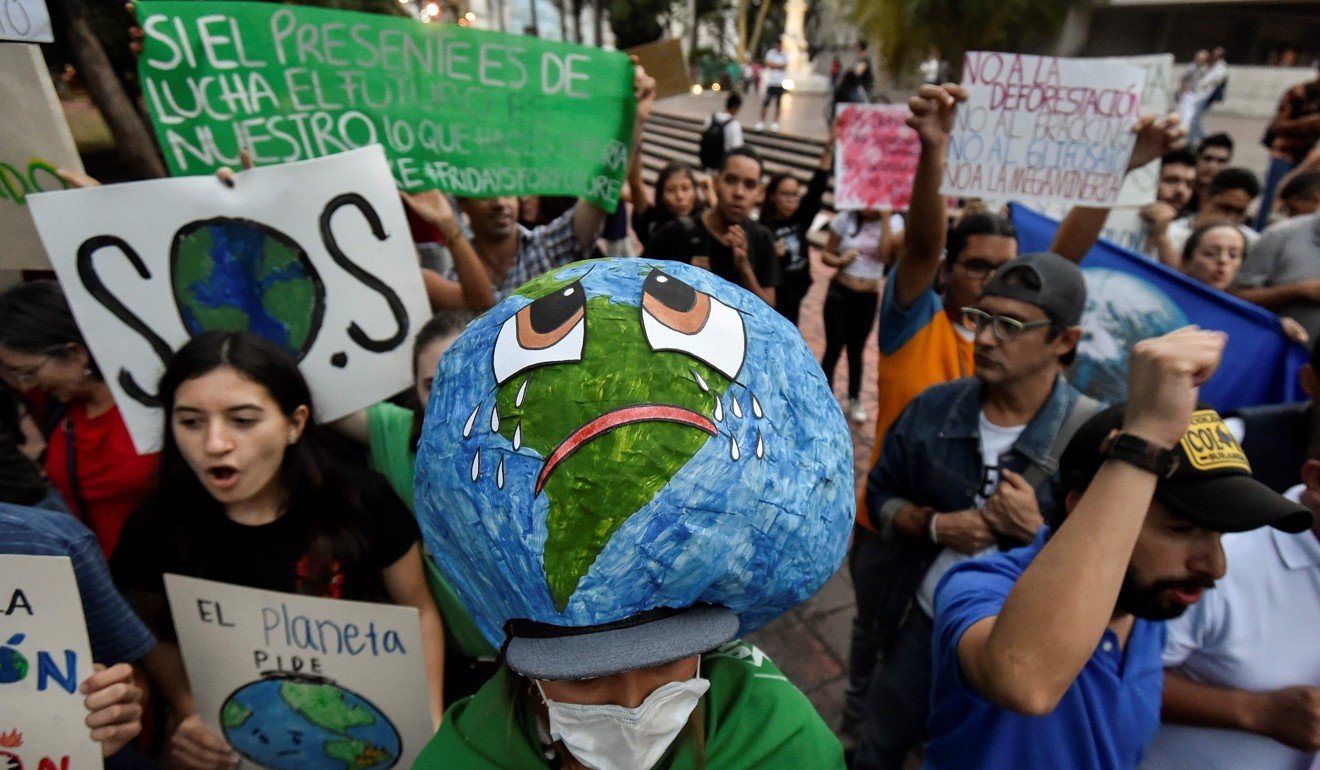
Hundreds of thousands of young people lead the way in ‘global climate strike’ protests
- Marches and demonstrations held from Canberra to Kabul to New York to send message to world leaders ahead of UN summit
- Swedish teen Greta Thunberg, whose activism helped inspire rallies, says she ‘would never have predicted or believed this was going to happen’

Masses of children skipped school to join a global strike against climate change that Swedish teenage activist Greta Thunberg said was “only the beginning”, ahead of a UN youth summit she will participate in Saturday.
Some four million people filled city streets around the world, organisers said, in what was billed as the biggest ever protest against the threat posed to the planet by rising temperatures.
Youths and adults alike chanted slogans and waved placards in demonstrations that started in Asia and the Pacific, spread across Africa, Europe and Latin America, before culminating in the United States, where Thunberg rallied.

“Change is coming whether they like it or not,” said Thunberg, hitting out at sceptics as she wrapped up the massive day of action in New York, where she said 250,000 people protested.
Strike organisers 350.org said Friday’s rallies were the start of 5,800 protests across 163 countries over the next week.
In the estimated 185 countries where demonstrations took place, the protests often had their individual targets; from rising sea levels in the Solomon Islands, toxic waste in South Africa, to air pollution and plastic waste in India and coal expansion in Australia.
But the overall message was unified – a powerful demand for an urgent step-change in action to cut emissions and stabilise the climate.
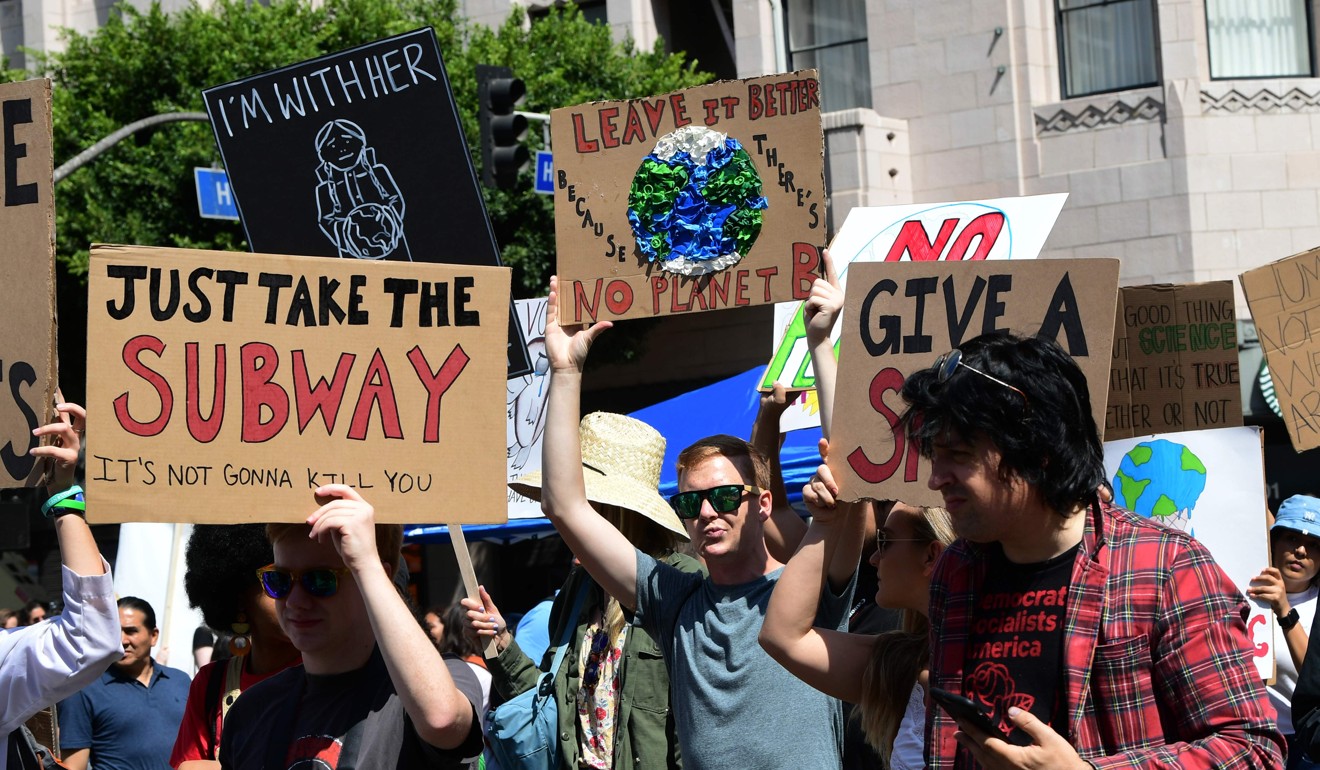
“Basically, our Earth is dying, and if we don’t do something about it, we die,” said AJ Conermann, a 15-year-old high school sophomore among several thousand who marched to the Capitol building in Washington. “I want to grow up. I want to have a future.”
In New York, where public schools excused students with parental permission, tens of thousands of mostly young people marched through lower Manhattan.
“Sorry I can’t clean my room, I’m busy saving the world,” one protester’s sign declared.
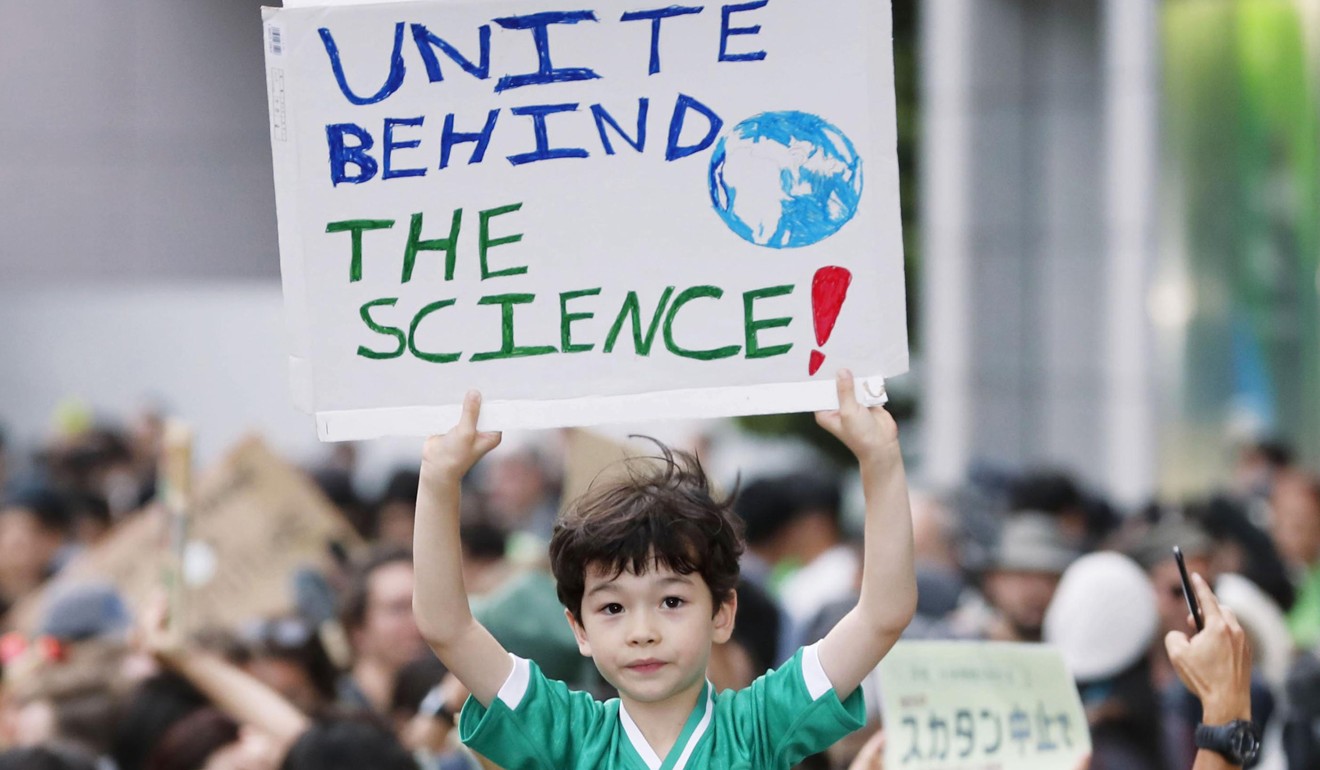
Thousands packed the streets around Seattle’s City Hall, following a march where tech workers from Amazon and Google joined students demanding an end to fossil fuel use.
In Paris, teenagers and children as young as 10 traded classrooms for the streets. Marie-Lou Sahai, 15, skipped school because “the only way to make people listen is to protest”.
“We are out here to reclaim our right to live, our right to breathe and our right to exist, which is all being denied to us by an inefficient policy system that gives more deference to industrial and financial objectives rather than environmental standards,” said Avinash Chanchal, a young protester in Delhi.
The demonstrations were partly inspired by the activism of Thunberg, who has staged weekly “Fridays for Future” demonstrations for a year, urging world leaders to step up efforts against climate change.
“It’s such a victory,” Thunberg said in New York. “I would never have predicted or believed that this was going to happen, and so fast – and only in 15 months.”
Thunberg is expected to participate in a UN Youth Climate Summit on Saturday and speak at the UN Climate Action Summit with global leaders on Monday.
“They have this opportunity to do something, and they should take that,” she said. “And otherwise, they should feel ashamed.”
The world has warmed about 1 degree Celsius (1.8 degrees Fahrenheit) since before the Industrial Revolution, and scientists have attributed more than 90 per cent of the increase to emissions of heat-trapping gases from fuel-burning and other human activity.
Scientists have warned that global warming will subject the Earth to rising seas and more heatwaves, droughts, powerful storms, flooding and other problems, and that some have already started manifesting themselves.
Climate change has made record-breaking heat temperature records twice as likely as record-setting cold temperatures over the past two decades in the contiguous US, according to National Oceanic and Atmospheric Administration data.
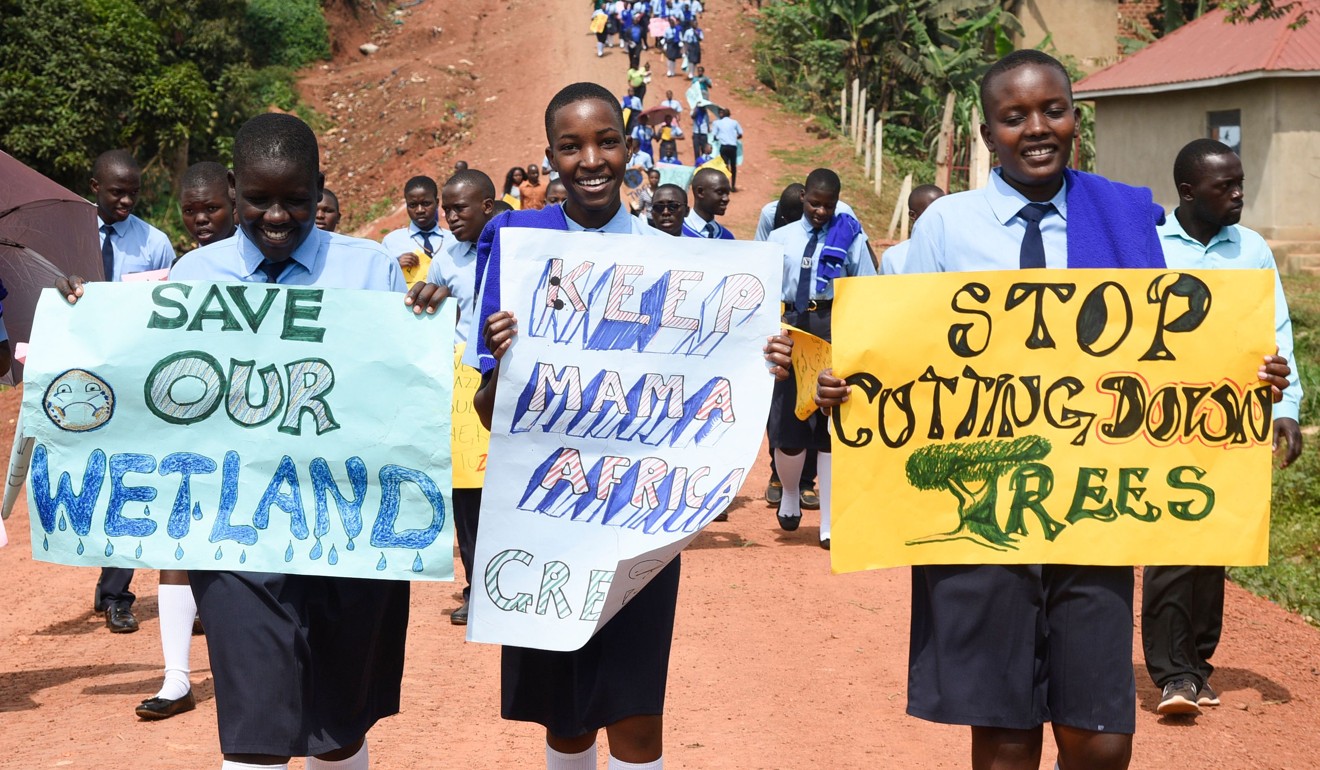
Nations around the world agreed at a 2015 summit in Paris to hold warming to less than 2 degrees Celsius (3.6 Fahrenheit) more than pre-industrial-era levels by the end of this century.
But US President Donald Trump subsequently announced that he was withdrawing the US from the agreement, which he said benefited other nations at the expense of American businesses and taxpayers.
Trump called global warming a “hoax” before becoming president. He has since said he is “not denying climate change” but is not convinced it is man-made or permanent.
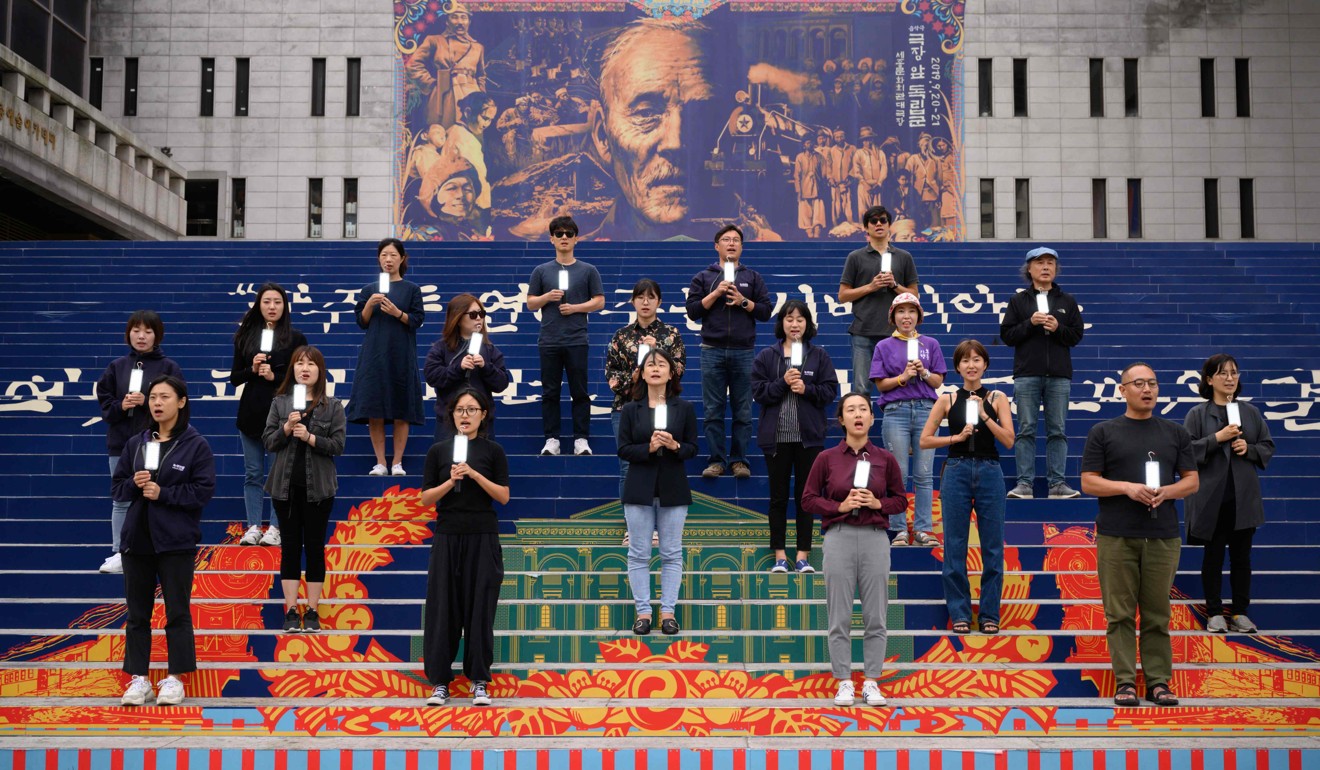
New York protester Pearl Seidman, 13, hoped the demonstration would tell the Trump administration “that if they can’t be adults, we’re going to be adults. Because someone needs to do it”.
Amazon, which ships more than 10 billion items a year, vowed on Thursday to cut its use of fossil fuels, and Google CEO Sundar Pichai told the Financial Times in a story published on Friday that eliminating the company’s carbon emissions by 2030 didn’t seem “unreasonable”.
‘WE’RE NOT SINKING, WE’RE FIGHTING’

Friday’s demonstrations action began in the Pacific Islands, where citizens have repeatedly asked wealthier nations to do more to prevent rising sea levels.
Over the course of the day, children and students from Fiji, Samoa, Vanuatu, Kiribati, Tuvalu, Marshall Islands, Tonga, New Caledonia, the Solomon Islands and Papua New Guinea took part in poetry performances, silent protests, sporting events and discussions.
Students held placards in Kiribati and chanted: “We are not sinking, we are fighting.”
The demonstrations spread across Australia – the world’s biggest exporter of coal and liquid natural gas – where more than 300,000 people took to the streets in 100 rallies across across 110 towns and cities, including Sydney and the national capital, Canberra.
Acting Prime Minister Michael McCormack – filling in while Australian Prime Minister Scott Morrison was on a state visit to the US – said Australia was already taking action to cut emissions.
McCormack called the climate rallies “a disruption” that should have been held on a weekend to avoid inconveniences.
Danielle Porepilliasana, a Sydney high school student, said: “World leaders from everywhere are telling us that students need to be at school doing work. I’d like to see them at their parliaments doing their jobs for once.”
In Tokyo, hundreds of students and environmental activists marched through the business and shopping district of Shibuya, chanting “Climate Justice!” while holding hand-painted placards made of cardboard with messages such as “Go Green”, ‘‘Save the Earth”, and “the Earth is on fire”.
No protests were authorised in China, the world’s biggest source of greenhouse gas emissions, but Zheng Xiaowen of the China Youth Climate Action Network said Chinese youth would take action one way or another.
“Chinese youth have their own methods,” she said. “We also pay attention to the climate and we are also thinking deeply, interacting, taking action, and so many people are very conscientious on this issue.”
In Thailand, hundreds of young people demonstrated outside the environment ministry in Bangkok and dropped to the ground feigning death.
“We are the future and we deserve better,” said 12-year-old Ralyn ‘Lilly’ Satidtanasarn – who has been dubbed “Thailand’s Greta” for her campaign against plastic bag use in a country where each person uses 3,000 throwaway bags a year.
Strikes took place in several Nigerian cities, including Lagos, which is often beset by formidable quantities of toxic waste including thousands of tons of e-waste from the EU.
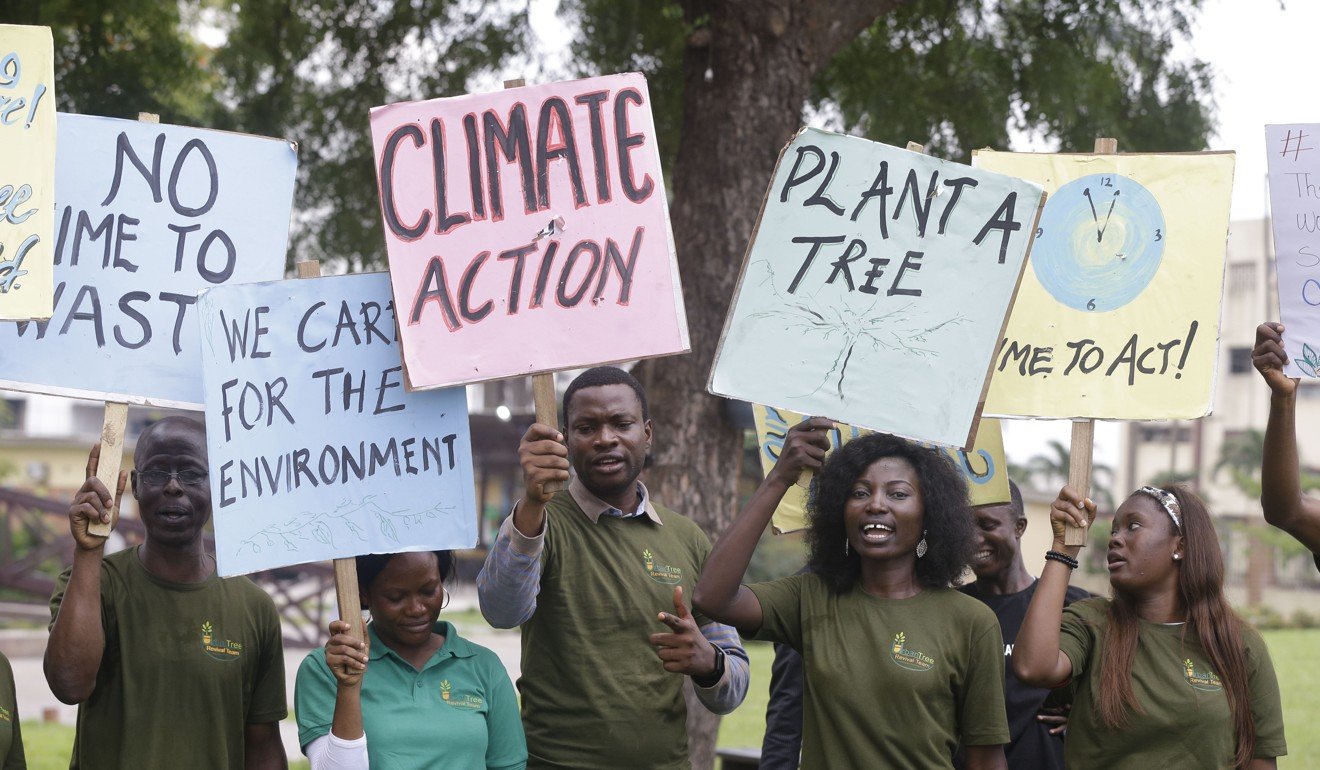
“Leaders should listen to what the climate scientists are saying. No leader should forfeit the future of younger generation,” said Oladosu Adenike, an activist in the Fridays4Future campaign in Nigeria.
Many middle schools in largely coal-reliant Poland gave students the day off so they could participate in the rallies in Warsaw and other cities, and President Andrzej Duda joined school students picking up trash in a forest.
German police said more than 100,000 people gathered in front of Berlin’s landmark Brandenburg Gate, near where Chancellor Angela Merkel’s cabinet thrashed out the final details of a €54 billion (US$60 billion) plan to curb Germany’s greenhouse gas emissions.
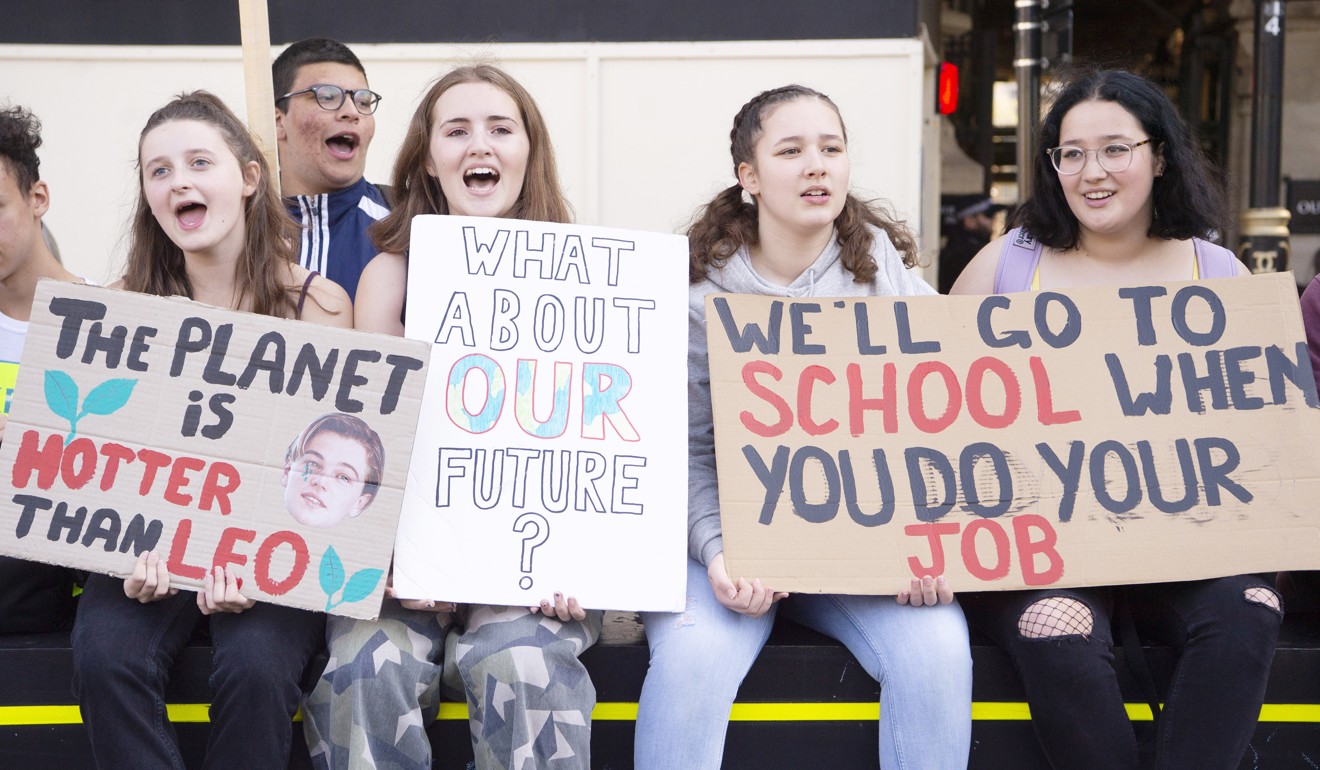
Thousands of schoolchildren and their adult supporters demonstrated in London outside the British Parliament.
The British government said it endorsed the protesters’ message but did not condone skipping school – a stance that did not sit well with some of the young protesters.
“If politicians were taking the appropriate action we need and had been taking this action a long time ago when it was recognised the world was changing in a negative way, then I would not have to be skipping school,” said Jessica Ahmed, a 16-year-old London student.
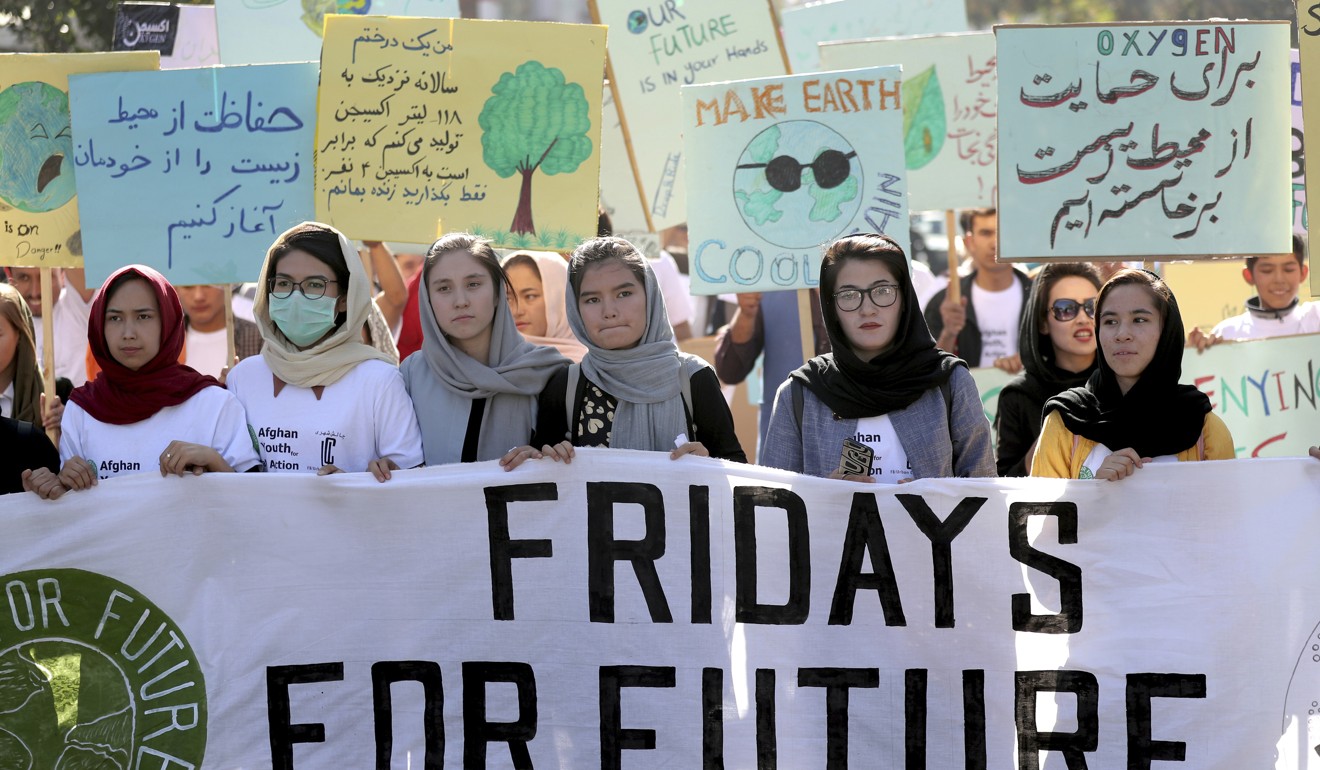
In the Afghan capital, Kabul, an armoured personnel carrier was deployed to protect about 100 young people as they marched, led by a group of several young women carrying a banner emblazoned with “Fridays for Future”.
“We know war can kill a group of people,” said Fardeen Barakzai, one of the organisers. “The problem in Afghanistan is our leaders are fighting for power, but the real power is in nature.”
In South America, scores of demonstrators gathered outside the Rio de Janeiro state legislature in Brazil, where a recent increase in fires in the Amazon region stirred an international outcry.
